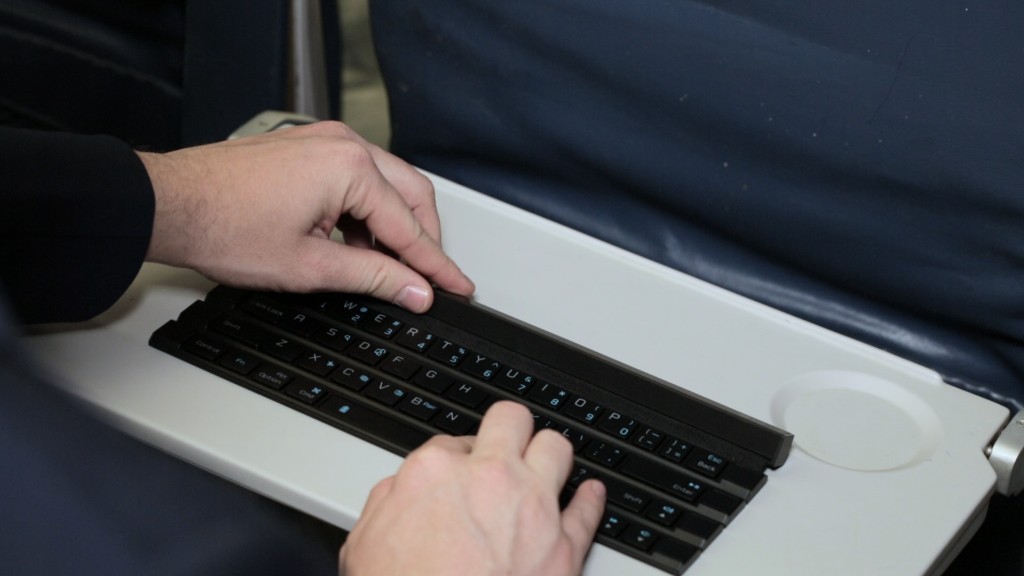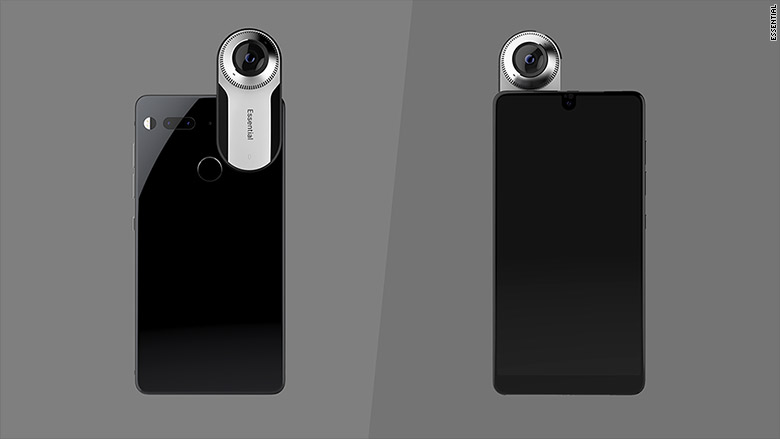
Andy Rubin, the founder of Android, is back with a new phone.
On Tuesday, Rubin and his new company Essential Products unveiled a $699 Android smartphone called the Essential phone.
The Essential has an edge-to-edge display that covers almost the entire front of the device. It also boasts the world's thinnest dual camera system "ever built for a phone," according to its website.
But it's a pair of dots on the side that set the phone apart. They're magnetic connectors that create a dock, designed to snap on and off various accessories. It's a concept called a "modular" phone that allows for swappable hardware pieces.

For now, Essential is offering a 360-degree camera accessory for an additional $50. The company will also offer a cordless docking station in the near future. Rubin's former employer Google ended its own modular Project Ara experiment last year.
Related: Samsung unveils first new flagship phones since exploding phone debacle
Meanwhile, Essential clearly set out to differentiate its offering in the competitive smartphone market dominated by Apple (AAPL) and Samsung (SSNLF). Its phone features a titanium body and a ceramic back. Unlike aluminum -- which most phones are made of -- titanium is more resilient and doesn't scratch, dent or bend. The device was drop-tested on solid concrete and survived without any scratches, unlike "the aluminum competitor devices," the company said.
The phone -- which comes in black, white, gray and a bluish green -- is available on Essential's website for pre-order starting Tuesday in the United States. It supports all U.S. carriers. The international release will be announced at a later date.
Related: Google Photos can now make physical books
The new phone was first reported by The Verge and Wired. Rubin will speak at Recode's Code Conference on Tuesday night.
Essential is also launching an Amazon Echo competitor called "Home." Based on the website, it's a smart assistant with a big circular screen that can perform tasks like playing music or letting you know when a light was left on -- but further details remain unclear.

